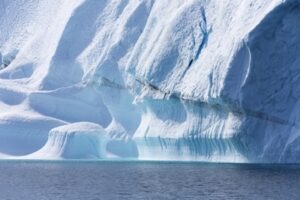 A new study from the University of Waterloo found that sea level rise could be accelerated by vulnerable ice shelves in Antarctica. The study, conducted by an international team of polar scientists led by the Canada Research Chair Christine Dow Environmental School Waterloo, found that the ice melting process of tablets warmer water from the ocean to the bottom also separates from above, increasing the chance that it will come off.
A new study from the University of Waterloo found that sea level rise could be accelerated by vulnerable ice shelves in Antarctica. The study, conducted by an international team of polar scientists led by the Canada Research Chair Christine Dow Environmental School Waterloo, found that the ice melting process of tablets warmer water from the ocean to the bottom also separates from above, increasing the chance that it will come off.
“We are learning that ice shelves are more vulnerable to rising ocean and air temperatures than we thought,” Dow said. “Here are the dual processes: one that destabilizes down and one up. This information could impact our timelines for the collapse of the ice shelf and the resulting sea level rise due to climate change.”
The study, which ran for two years, applied methods similar to forensic science to the ice platforms that had already given birth. Surveys using radar images and Landsat, Dow reported direct evidence that a major delivery event in the 2016 Nansen Ice Shelf in the Ross Sea was the result of one of the melting channels involved in the bottom of the ice shelf fracture. Studies have also shown that transverse fractures similar to basal canals occur in other parts of Greenland and Antarctica.
As the warmer salt water erodes the channels in the ice that connects the glaciers to a stable ground, it also generates massive vertical fractures that separate the glaciers above and below. Surface water melting on the ice shelves is poured into these cracks, further accelerating the problem.
“This study is further evidence that the effects of climate change on global warming are impacting our planet in an often more dangerous way than we thought,” Dow said. “There are many more vulnerable ice shelves in Antarctica that, if broken, will speed up the process of sea level rise.”





